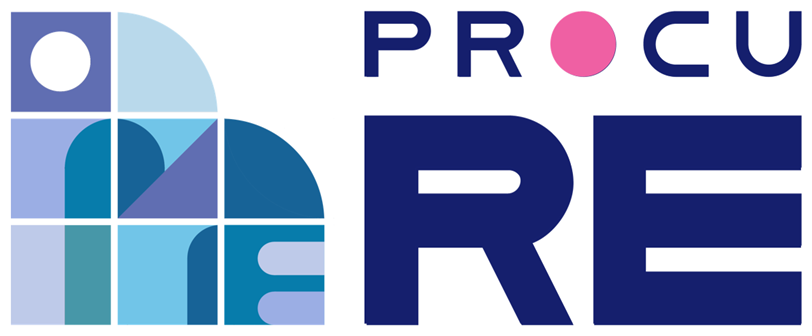Pre-Commercial Procurement
Pre-Commercial Procurement (PCP) is an approach to public procurement of research and development (R&D) services that is outlined in the PCP communication and associated staff working document. Pre-Commercial Procurement challenges industry from the demand side to develop innovative solutions for public sector needs and it provides a first customer reference that enables companies to create competitive advantage on the market.
procuRE drives innovation from the demand side by acting as technologically demanding customers that buy the development and testing of new solutions. PCP enables public procurers to compare alternative potential solution approaches and filter out the best possible solutions that the market can deliver to address the public need. This enables European public authorities to modernize public services faster and to create opportunities for companies in Europe to take international leadership in new markets.
How does PCP work?
Competitive development in phases:
Encouraging the creation of growth and jobs in Europe:
Risk-benefit sharing under market conditions:
Separation from the deployment of commercial volumes of end-products / services:
PCP is for both, buyers and suppliers, a successful instrument benefiting SMEs in particular:
-
Opening a route-to-the market for new market players
73.5% of PCP contracts are won by SMEs, 61.5% of total values of PCP contracts, more than twice the average in public procurement across Europe (29%)
-
Impact on stimulating cross-border company growth
33.1% of PCP contracts are awarded cross-border, 20 times more than the average in public procurement across Europe (1.7%)
-
Bringing research results to the market
30% of contracts have universities or research centres as partners in the winning consortia (often together with university start-ups)
-
Contribution to growth and jobs in Europe
Nearly all bidders (99.5%) are doing 100% of the R&D for the PCP contract in Europe
-
Steady business growth
~50% of all companies are already generating revenue from commercialising their PCP solution
-
Deployment of solutions by procurers from the project
Procurers from 55% of the completed PCPs have already deployed developed solutions
The procuRE Timeline
procuRE follows the stages of the PCP process as set-out by the European Commission, i.e. work will be divided into four subsequent phases:
December 2020 - October 2021: Prepraration phase
November 2021 - March 2022: Call for Tender
Concept design, solution architechture, technical specifications and assessment framework
Development of prototype systems: design level is as detailed as possible, planning and calculations are final
Deployment and testing of the solutions: designs are turned into construction drawings, the solutions are installed, made operational, maintained and performance data collected
[Phase 0]
The Open Market Consultation (OMC) represents a specific phase during the overall Pre-Commercial Procurement preparation. The objective is to actively approach the market to learn more about the state-of-the-art, as well as about envisaged future developments on operating buildings only with renewable energy. A series of OMC events will be organised and announced in section events, newsletter etc.
[Phase 1]
[Phase 2]
The Development of Prototype phase is an 8-month phase in which four contractors refine and increase the level of detail of their designs and organise tests
of all user-facing ICT-systems. The design level is as detailed as possible without the requirement to
constitute construction drawings. Planning and calculations should be final. The use of the Co-Design procedure should be intensified. This phase aims to turn the schematic design
to detailed designs preparing all parties involved for rapid implementation; and to give future users the opportunity to test all ICT-systems. The total procurement budget in Phase 2 will be 2.3 million euro.

